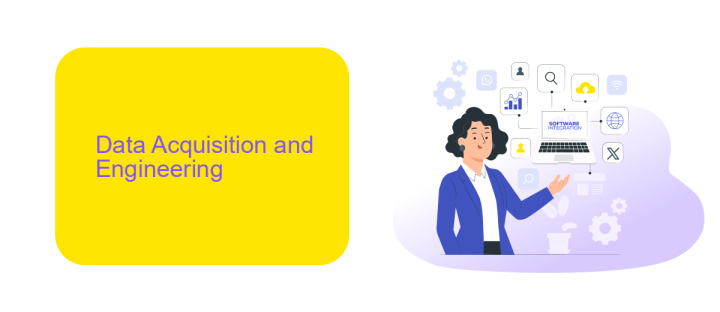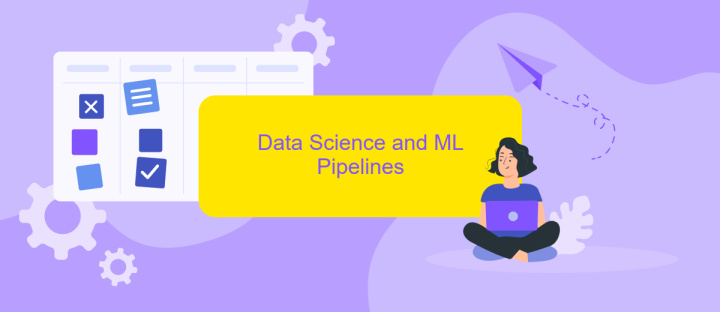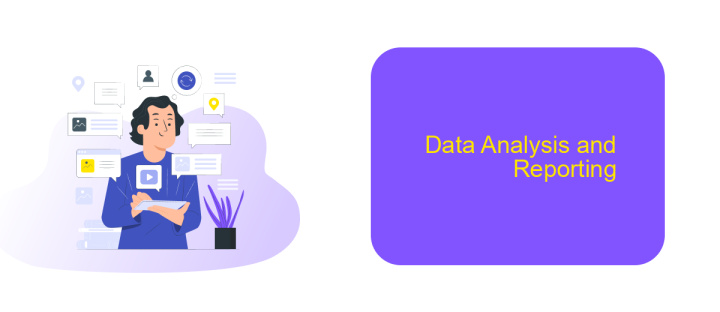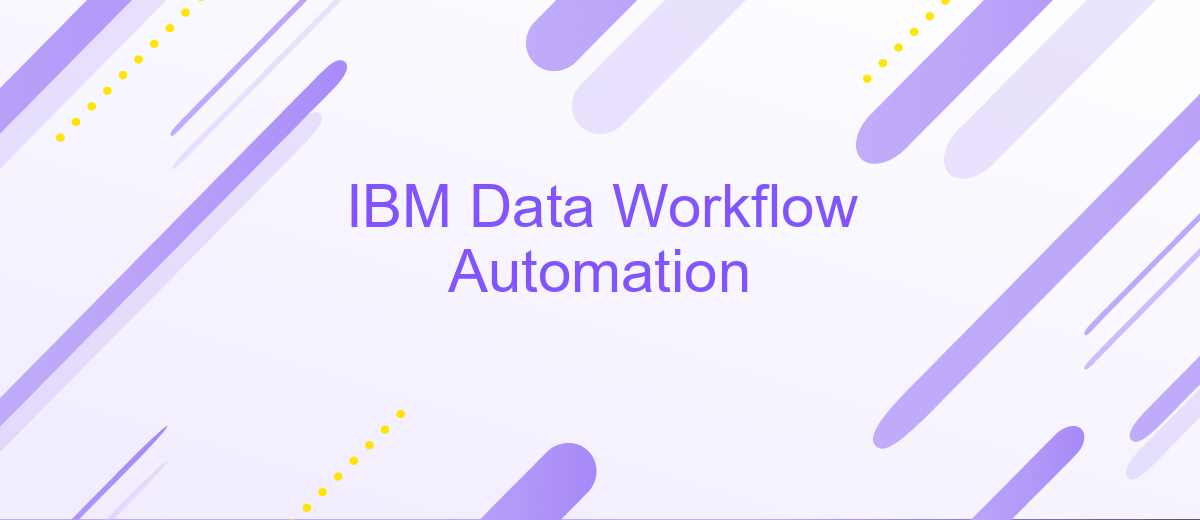IBM Data Workflow Automation
In today's data-driven world, efficient data management is crucial for business success. IBM Data Workflow Automation offers a comprehensive solution to streamline and optimize data processes. By automating repetitive tasks and integrating advanced analytics, this technology empowers organizations to enhance productivity, reduce errors, and make informed decisions faster. Discover how IBM is revolutionizing data workflows and driving innovation across industries.
Introduction
IBM Data Workflow Automation is a transformative approach that significantly enhances the efficiency and accuracy of data processing tasks. By leveraging advanced automation technologies, organizations can streamline their data workflows, reduce human error, and accelerate decision-making processes.
- Automated data collection and integration
- Real-time data processing and analysis
- Enhanced data security and compliance
- Scalable and flexible workflow management
One of the key benefits of IBM Data Workflow Automation is its ability to integrate seamlessly with various third-party services. For instance, using tools like ApiX-Drive, businesses can effortlessly connect their data sources and automate data transfers between different platforms. This not only saves time but also ensures that data is always up-to-date and accurate, ultimately leading to more informed business decisions.
Data Acquisition and Engineering

Data acquisition is a critical first step in IBM Data Workflow Automation, ensuring that accurate and relevant data is collected from various sources. This process involves integrating multiple data streams, including databases, APIs, and third-party applications. Tools like ApiX-Drive can simplify this integration by providing a seamless interface for connecting disparate data sources. By automating data collection, businesses can ensure that they have real-time access to the information needed for informed decision-making.
Once data is acquired, data engineering processes come into play to transform raw data into a usable format. This involves cleaning, normalizing, and structuring the data to make it compatible with analytical tools and workflows. Automation tools can significantly reduce the time and effort required for these tasks, allowing data engineers to focus on more complex problem-solving activities. With a robust data engineering framework, businesses can enhance the quality and reliability of their data, leading to more accurate insights and better outcomes.
Data Science and ML Pipelines

Data science and machine learning (ML) pipelines are essential for transforming raw data into actionable insights. These pipelines typically involve multiple stages, including data collection, preprocessing, model training, and deployment. Efficient automation of these stages can significantly enhance productivity and accuracy in data-driven projects.
- Data Collection: Gathering data from various sources such as databases, APIs, and third-party services. Tools like ApiX-Drive can streamline this process by automating data integration from multiple platforms.
- Data Preprocessing: Cleaning and transforming data to ensure quality and consistency. This step includes handling missing values, normalization, and feature engineering.
- Model Training: Using preprocessed data to train machine learning models. This involves selecting appropriate algorithms, tuning hyperparameters, and validating model performance.
- Deployment: Implementing the trained model into production environments for real-time predictions. Continuous monitoring and maintenance are crucial for ensuring model reliability.
Automation tools like IBM Data Workflow Automation can orchestrate these stages efficiently, reducing manual effort and minimizing errors. By integrating services such as ApiX-Drive, data scientists can automate data collection and integration, allowing them to focus on more complex tasks like model development and optimization. This holistic approach not only accelerates the data science workflow but also enhances the overall quality of insights derived from the data.
Data Analysis and Reporting

Effective data analysis and reporting are crucial components of IBM Data Workflow Automation. By leveraging advanced analytics tools, businesses can gain valuable insights from their data, enabling informed decision-making and strategic planning. The automation of these processes ensures accuracy, consistency, and timeliness in data handling.
IBM Data Workflow Automation integrates seamlessly with various data sources, allowing for comprehensive data collection and analysis. This integration is essential for creating detailed reports that accurately reflect business performance and trends. One of the services that can facilitate these integrations is ApiX-Drive, which allows for easy connection between multiple platforms and data sources.
- Automated data collection from diverse sources
- Real-time data analysis and visualization
- Customizable reporting templates
- Seamless integration with ApiX-Drive for enhanced connectivity
By automating data analysis and reporting, businesses can reduce manual errors, save time, and focus on strategic initiatives. The use of services like ApiX-Drive ensures that all data points are accurately captured and integrated, providing a holistic view of business operations and facilitating better decision-making processes.
Governance and Orchestration
Effective governance and orchestration are critical components of IBM Data Workflow Automation, ensuring that data processes are managed, monitored, and optimized efficiently. Governance involves establishing policies, procedures, and standards to manage data quality, security, and compliance. Orchestration, on the other hand, focuses on automating and coordinating complex data workflows, enabling seamless integration across various systems and platforms. Together, they provide a robust framework for maintaining data integrity and enhancing operational efficiency.
To streamline the integration of diverse data sources and applications, leveraging tools like ApiX-Drive can be immensely beneficial. ApiX-Drive simplifies the process of connecting different services, enabling automated data transfers and real-time synchronization. By incorporating such tools, organizations can enhance their orchestration capabilities, ensuring that data flows smoothly between systems without manual intervention. This not only reduces the risk of errors but also accelerates decision-making processes, ultimately driving better business outcomes.
FAQ
What is IBM Data Workflow Automation?
How can IBM Data Workflow Automation benefit my organization?
Is it possible to integrate IBM Data Workflow Automation with other software?
What types of data workflows can be automated using IBM Data Workflow Automation?
Do I need technical expertise to implement IBM Data Workflow Automation?
Time is the most valuable resource in today's business realities. By eliminating the routine from work processes, you will get more opportunities to implement the most daring plans and ideas. Choose – you can continue to waste time, money and nerves on inefficient solutions, or you can use ApiX-Drive, automating work processes and achieving results with minimal investment of money, effort and human resources.

